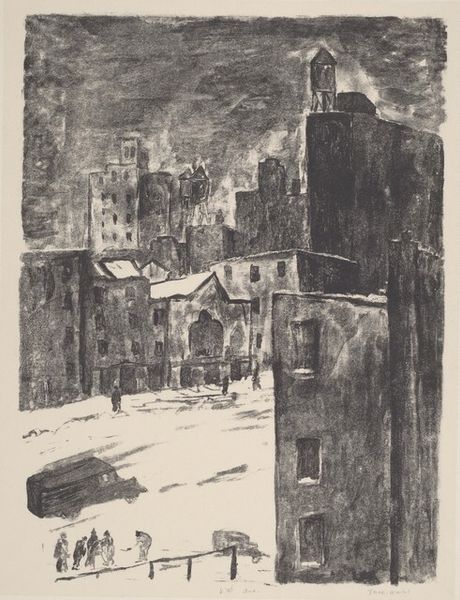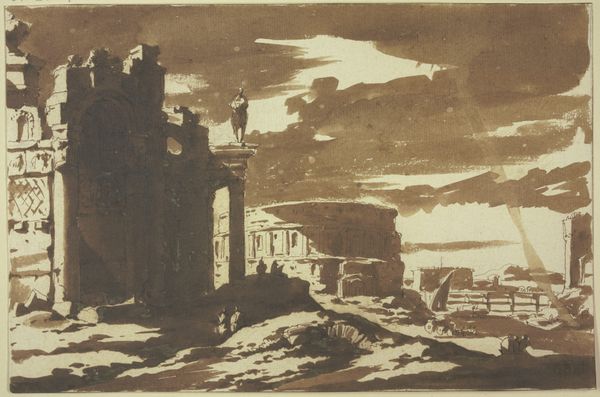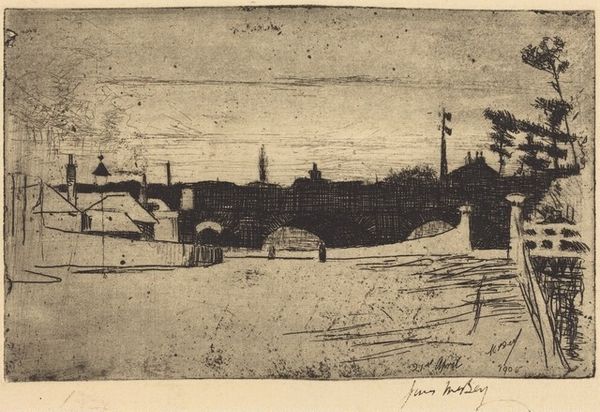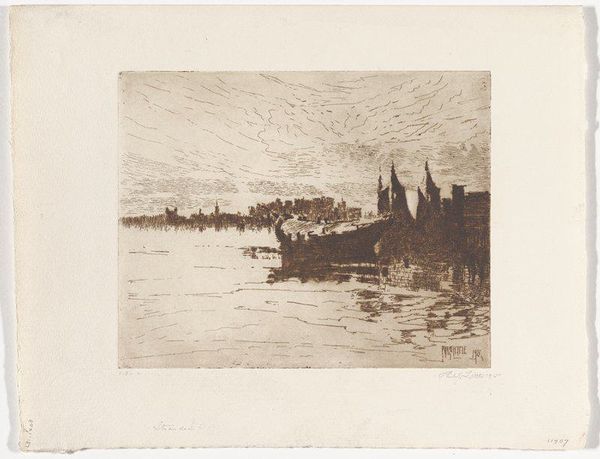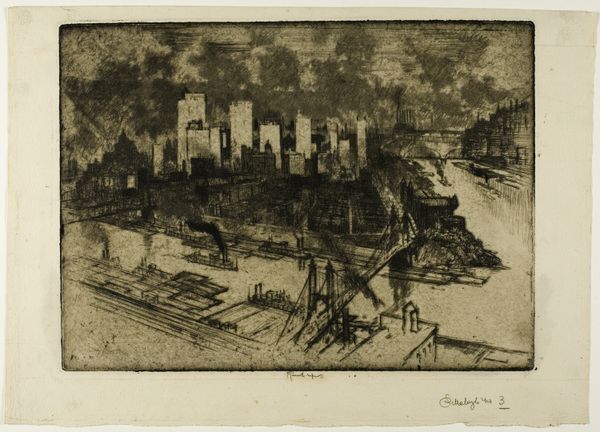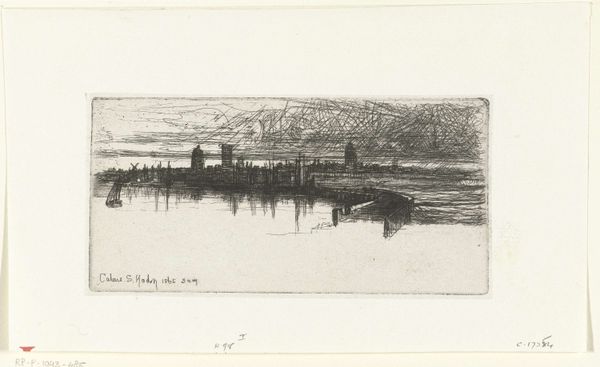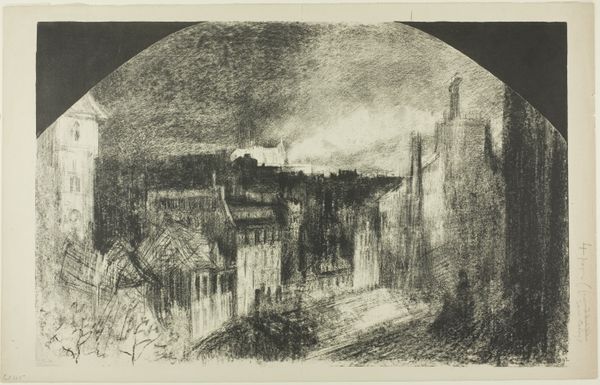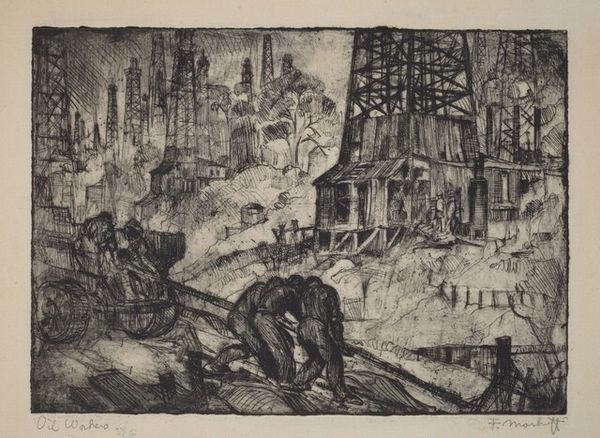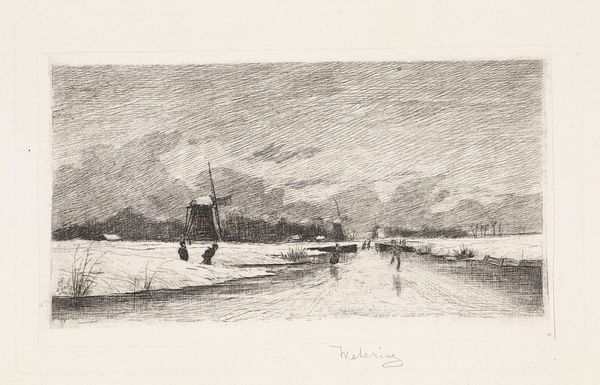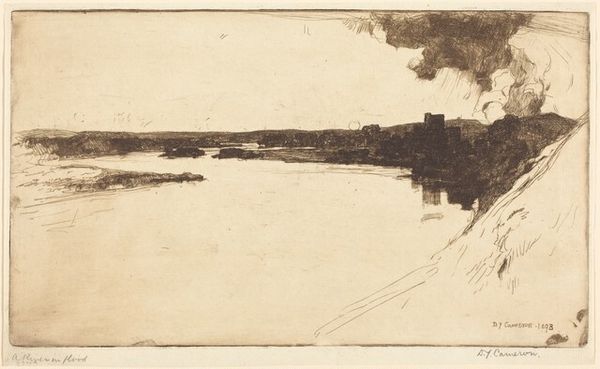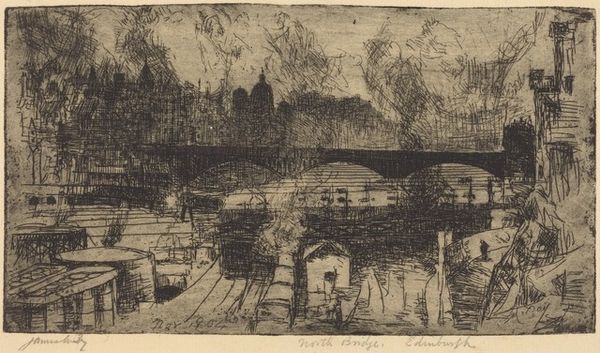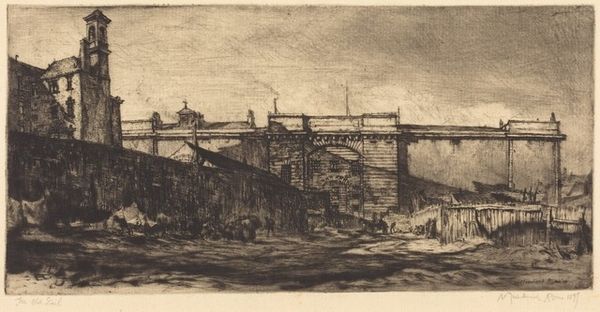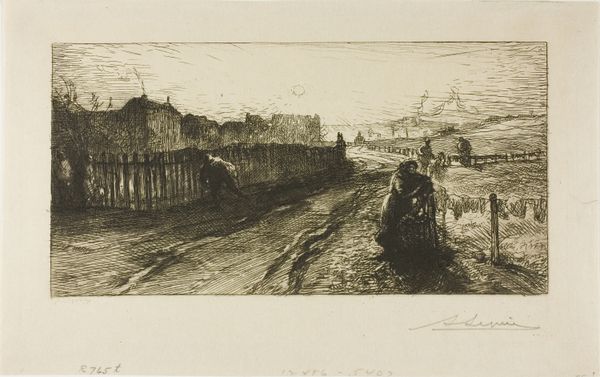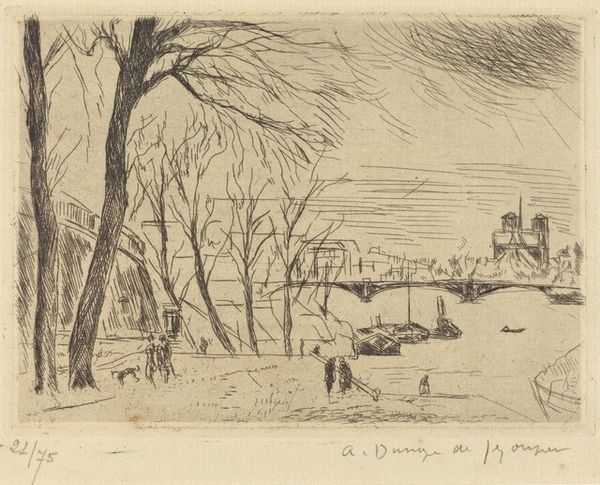
#
amateur sketch
#
light pencil work
# print
#
pen sketch
#
pencil sketch
#
incomplete sketchy
#
personal sketchbook
#
pen-ink sketch
#
sketchbook drawing
#
sketchbook art
#
watercolor
Copyright: National Gallery of Art: CC0 1.0
Curator: This is "Calton Jail, Edinburgh," a 1904 print by James McBey. Editor: My initial sense is a rather bleak fairytale, something out of the Brothers Grimm, with the scratchy lines amplifying a feeling of being windswept and forlorn. Curator: Observe the use of line. McBey uses hatching and cross-hatching to create depth and shadow. Note particularly how the density of the lines suggests both the solidity of the jail structure and the oppressive weight of the sky. Editor: I think it also manages to capture a raw honesty. It’s so obviously a sketch, yet it speaks volumes about the atmosphere. I can almost feel the Edinburgh drizzle and the biting wind just looking at the sketch. I appreciate how the visible sketch marks add an undeniable intimacy, like finding an unedited diary entry. Curator: The composition reinforces this. The imposing architecture of the jail dominates the horizon line, creating a visual barrier, and effectively dividing the image into distinct zones—sky, structure, and foreground. Semiotically, it suggests themes of confinement, restriction, and the imposition of order. Editor: And yet there's a glimmer of hope too. There is life on the streets. The buildings loom large, like stone giants brooding over everything. However, in my perspective, a bit of humanity manages to survive it all. Are these everyday folk immune to it? Or is it something much sadder and sinister. I can't tell... Curator: Interesting point, how your interpretation integrates social and psychological elements of what it meant to occupy urban Edinburgh at the time. His economy of line actually allows for multiple readings—oppression and persistence are intertwined. Editor: I love that. Ultimately, McBey gives us something very haunting and open, less a judgment than a record, where shadows dance in the Edinburgh gloom. Curator: Precisely, a testament to the power of visual encoding where absence speaks just as loudly as presence. It exemplifies, on the one hand, a masterclass in effective mark making and a profound emotional portrait.
Comments
No comments
Be the first to comment and join the conversation on the ultimate creative platform.
